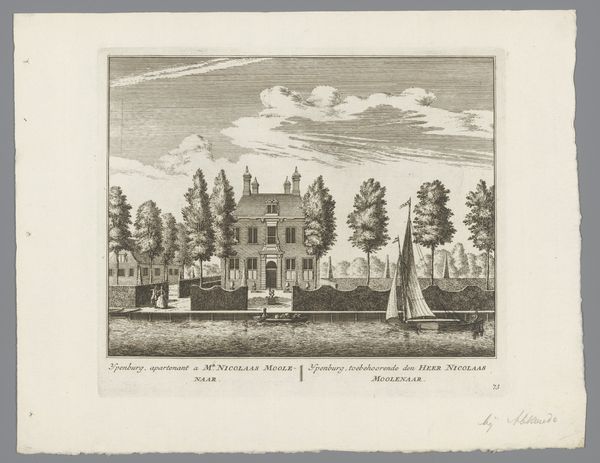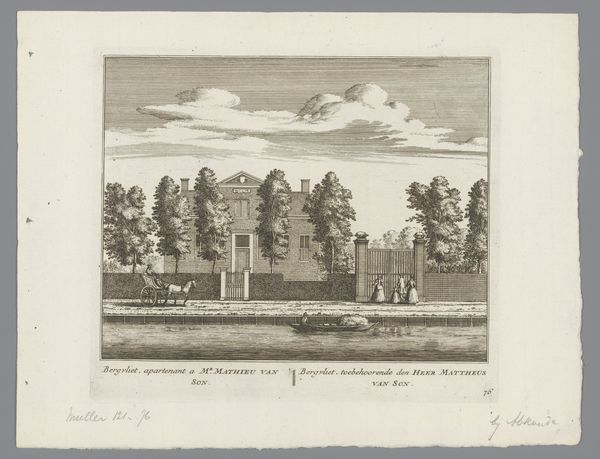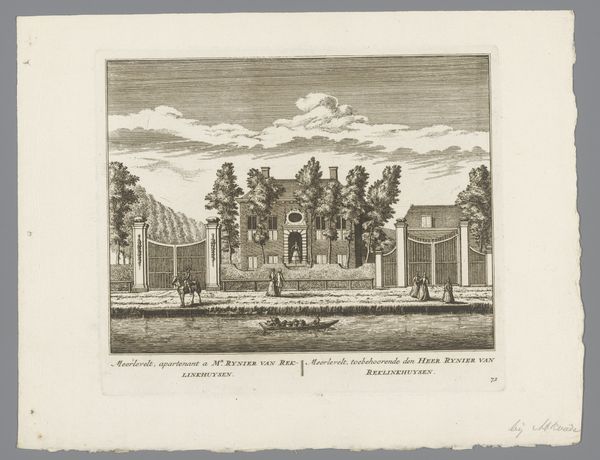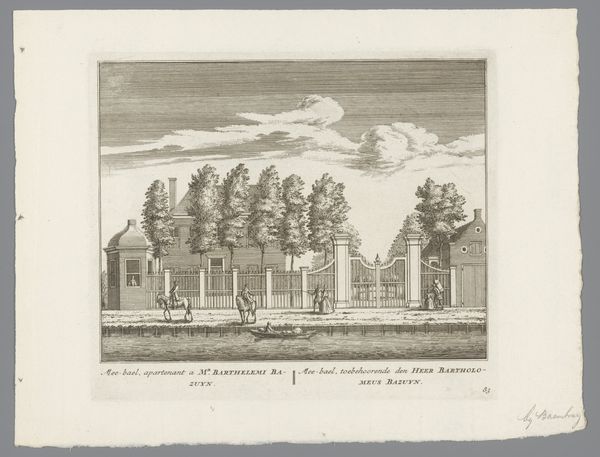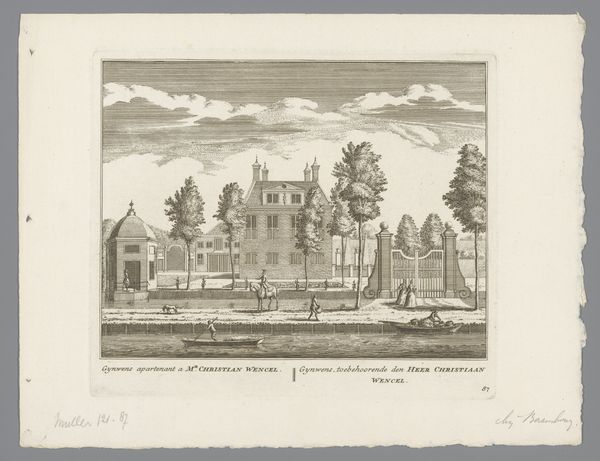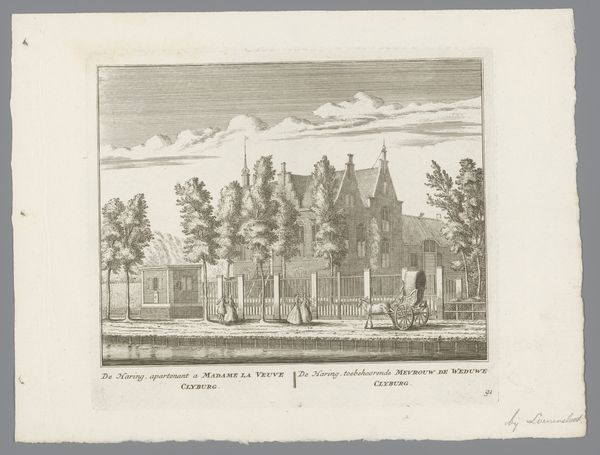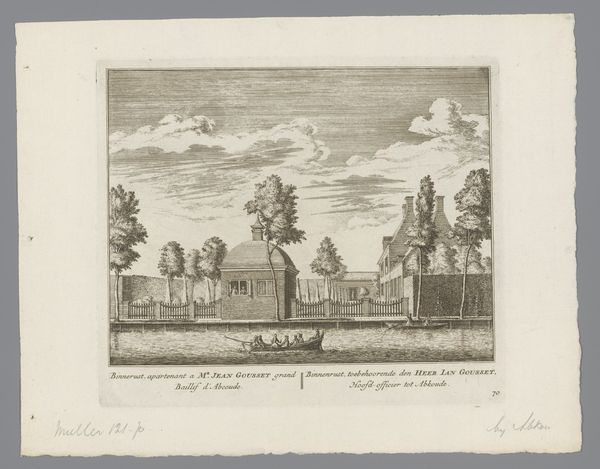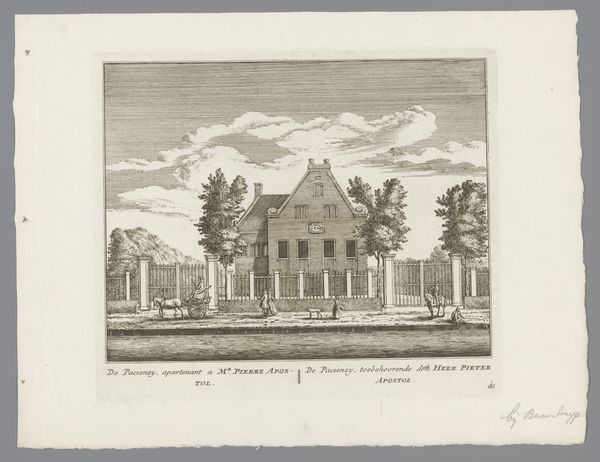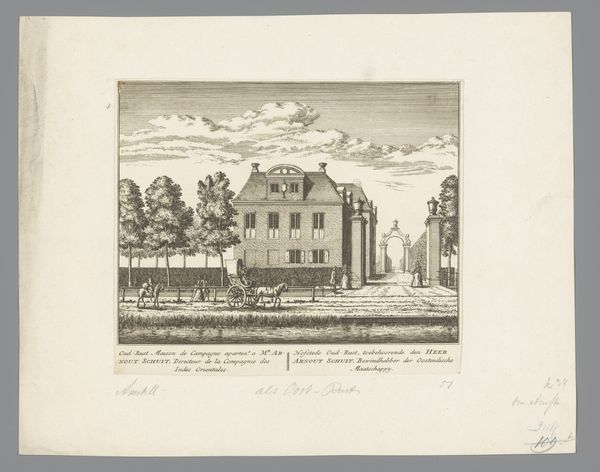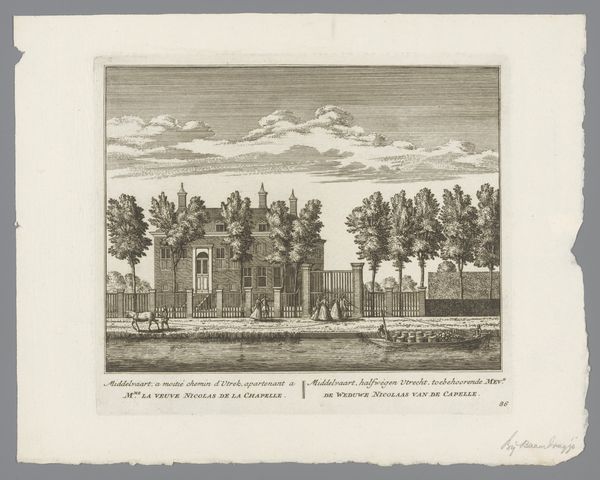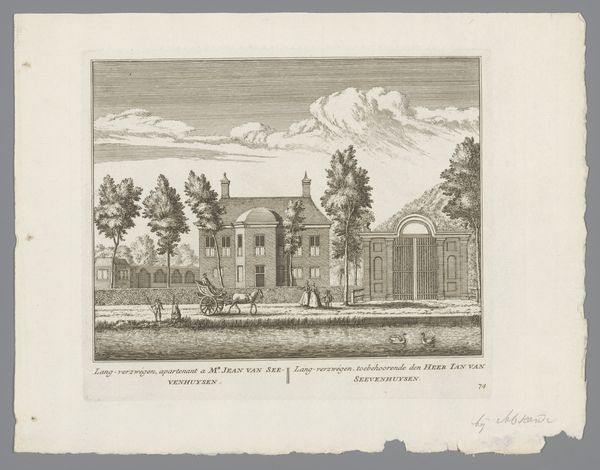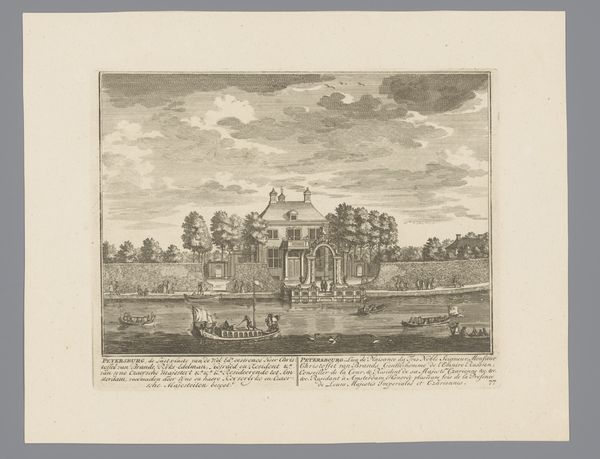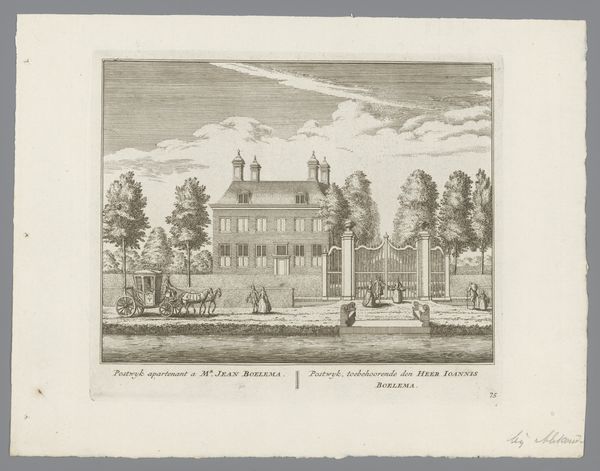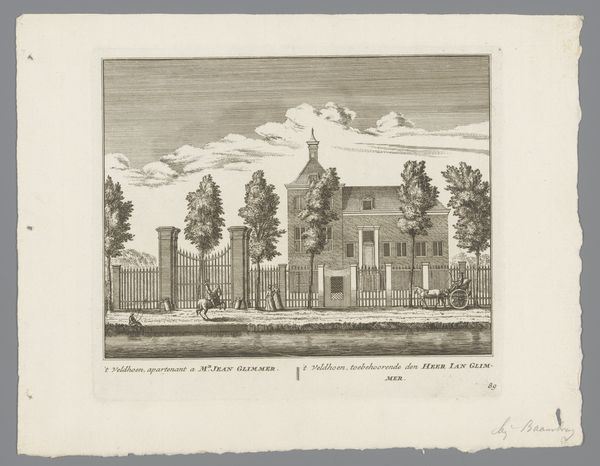
print, etching
#
baroque
#
dutch-golden-age
# print
#
etching
#
landscape
#
cityscape
Dimensions: height 174 mm, width 200 mm
Copyright: Rijks Museum: Open Domain
Abraham Rademaker made this print of the Bassenhof estate near Baambrugge using etching, a printing technique dating back to the early 16th century. In etching, a metal plate, often copper, is coated with a waxy, acid-resistant substance called a ground. The artist then scratches an image into the ground with a pointed tool, exposing the metal beneath. When the plate is immersed in acid, the exposed lines are bitten or etched into the metal. The longer the plate remains in the acid, the deeper the lines become. Once the etching process is complete, the plate is cleaned, inked, and then pressed onto paper, transferring the image. The resulting print, like this one, has a distinctive quality. The fine lines, the subtle tonal variations achieved through varying depths of the etched lines, and the precision of the drawing, all speak to a highly skilled artisan. But this refined technique was also harnessed to visualise and circulate images of wealth and status, reflecting the economic hierarchies of the Dutch Golden Age.
Comments
No comments
Be the first to comment and join the conversation on the ultimate creative platform.
